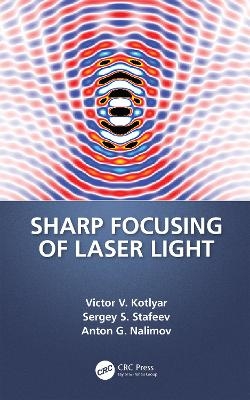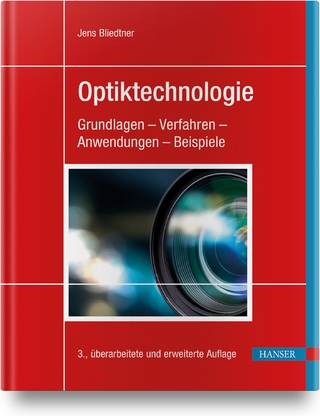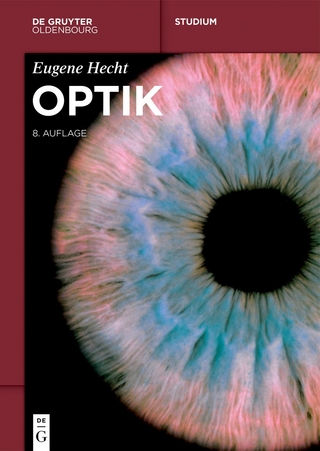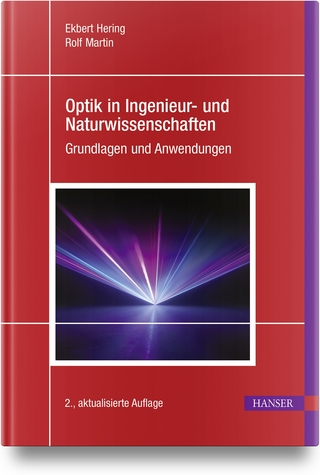
Sharp Focusing of Laser Light
CRC Press (Verlag)
978-0-367-36444-1 (ISBN)
Readers will learn in which ways light can be "confined" within a subwavelength region smaller than half a wavelength. Strictly within the focal spot, all degrees of freedom of light interact and manifest themselves in a dramatic way. The size and shape of the focal spot and the magnitude of side-lobes depend on the polarization state alongside phase and amplitude distributions of a light beam.
Readers will learn techniques in which inhomogeneously (i.e., azimuthally and radially) polarized optical beams can be focused. In sharp focus, exotic phenomena can occur, including the negative propagation of light and a toroidal optical flow.
Throughout the book, the numerical simulation is performed using the rigorous solution of Maxwell’s equations based on a Finite-Difference Time-Domain (FDTD) approach, which makes the results of modeling highly reliable. The photonic components, including optical metasurfaces, discussed in the book have been implemented using state-of-the-art techniques of electron beam writing and reactive ion-beam etching of microrelief.
Two chapters are concerned with photonics hot spots, which deal with the control of light by means of optical metasurfaces and the generation of an energy backflow in the region of sharp focus of a laser beam.
Another hot topic is diffractive polarization converters implemented as subwavelength diffraction gratings to convert polarization of light. By way of illustration, such converters are shown to perform linear-to-radial or linear-to-azimuthal polarization conversion.
The book describes advanced photonic components fabricated by the authors to perform sharp focusing of light, including binary zone plates, binary axicons, a planar photonic crystal lens, diffraction polarization converters, and metalenses.
This book is a must-have for individuals and institutions studying cutting edge optics.
Victor V. Kotlyar is the head of the Laboratory at the Image Processing Systems Institute of the Russian Academy of Sciences, a branch of the Federal Scientific Research Center, "Crystallography and Photonics," and professor of computer science at Samara National Research University. He received his MS, PhD, and DrSc degrees in physics and mathematics from Samara State University (1979), Saratov State University (1988), and Moscow Central Design Institute of Unique Instrumentation, the Russian Academy of Sciences (1992). He is the coauthor of 300 scientific papers, 6 books, and 7 inventions. His interests include diffractive optics, gradient optics, nanophotonics, and optical vortices. Sergey S. Stafeev earned a master’s degree in applied mathematics and physics at Samara State Aerospace University (2009). He is a researcher at the Laser Measurements Laboratory at the Image Processing Systems Institute оf the Russian Academy of Sciences, a branch of the Federal Scientific Research Center, "Crystallography and Photonics." His interests include diffractive optics, FDTD methods, and near-field optics. Anton G. Nalimov graduated from Samara State Aerospace University in February 2003. He entered postgraduate study in 2003 with a specialty in mathematical modeling and program complexes, which he completed in 2006 with a specialty in optics. He is an associate professor at the Technical Cybernetics Department at Samara National Research University and a scientist at the Image Processing Systems Institute оf the Russian Academy of Sciences, a branch of the Federal Scientific Research Center, "Crystallography and Photonics." He is a candidate in physics and mathematics and the coauthor of 130 papers and 3 inventions.
1. Focusing Laser Light by Axicon and Zone Plate 2. Near-Field Subwavelength Focal Spot 3. Subwavelength Focusing Light by Gradient Microoptics 4. Sharp Focusing of Light by Metasurface 5. Metalenses 6. Reverse Flux of Light Energy in Sharp Focus
| Erscheinungsdatum | 05.12.2019 |
|---|---|
| Zusatzinfo | 12 Tables, black and white; 459 Illustrations, black and white |
| Verlagsort | London |
| Sprache | englisch |
| Maße | 156 x 234 mm |
| Gewicht | 612 g |
| Themenwelt | Naturwissenschaften ► Physik / Astronomie ► Optik |
| Technik | |
| ISBN-10 | 0-367-36444-1 / 0367364441 |
| ISBN-13 | 978-0-367-36444-1 / 9780367364441 |
| Zustand | Neuware |
| Informationen gemäß Produktsicherheitsverordnung (GPSR) | |
| Haben Sie eine Frage zum Produkt? |
aus dem Bereich


